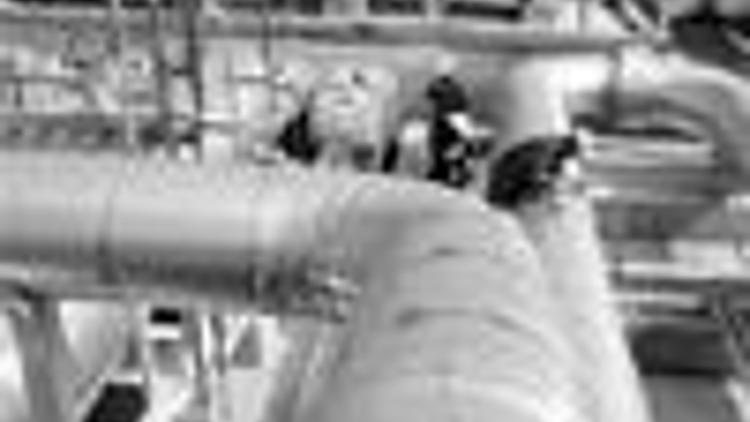Turkey prevails in Iran arbitration
Güncelleme Tarihi:

by Begüm Gürsoy - Referans
Oluşturulma Tarihi: Şubat 27, 2009 00:00
ANKARA - The ruling of the Swiss-based arbitration case over a gas price dispute between Iran and Turkey obliges Iran to pay $760 million to Turkey. Turkish Energy Ministry had conducted negotiations with Tehran, asking for a price reduction in natural gas but was rejected prior to arbitration
Turkey has won its arbitration case against Iran in a dispute over the purchase price of natural gas. Iran will have to pay $760 million to the Turkish Oil Pipelines Corporation, or BOTAŞ, and might reduce the unit price for gas it sells to Turkey. �
The Swiss-based arbitration lasted five years and ruled that Iran did not fulfill its obligations in the contract. Sources said the ruling might impact price negotiations between the two countries, leading to a decrease in the cost of Iranian gas. Similarly, BOTAŞ may cut gas prices in the domestic market as well.
Turkey’s disagreement with its neighboring country started in 2003 on the grounds that Iranian gas prices were even higher than Russian gas. Before the arbitration, the Energy Ministry conducted negotiations with Iran and asked for a price reduction that was worth 10 percent of the Russian gas price. Turkey also wanted to decrease, from 85 to 75 percent, the level of "take or pay" in gas purchases, which penalizes Turkey if it doesn’t purchase a minimum amount over a period of time. When Iran rejected the requests, Turkey took action and sought international arbitration.
Bilateral talks
Following the start of the arbitration process, Turkey and Iran restarted bilateral talks and signed a new contract in 2007 in order to cooperate in the energy field. The contract also foresaw the transfer of Iranian gas to European markets over Turkey. In this way, Iran’s request, which it first uttered during bilateral talks in 2004, was accepted three years later. However, there is still no concrete development on the subject.
Disruption in the natural gas flow to Turkey from Iran was another reason why Turkey sought international arbitration. Although Iran has to pump 10 billion cubic meters of gas to Turkey each year, since December 2007 it has had to occasionally cut its supply. Currently, Turkey purchases only 15 million cubic meters of gas from Iran instead of 28 million per day.
The arbitration ruling may also end Turkey’s "natural gas crisis," which the country has experienced each winter for the last few years, according to experts.
The ruling will end disruptions in the flow of natural gas to Turkey from Iran and the natural gas, which is pumped to Turkey, will be of better quality, an expert said.
Because of harsh winter conditions in Iran and high gas consumption rates in the northern parts of the country, occasional disruptions of Iranian natural gas flow occur during December, January and February. Then Turkey has to purchase gas from Russia, facing higher costs.
The Swiss-based arbitration lasted five years and ruled that Iran did not fulfill its obligations in the contract. Sources said the ruling might impact price negotiations between the two countries, leading to a decrease in the cost of Iranian gas. Similarly, BOTAŞ may cut gas prices in the domestic market as well.
Turkey’s disagreement with its neighboring country started in 2003 on the grounds that Iranian gas prices were even higher than Russian gas. Before the arbitration, the Energy Ministry conducted negotiations with Iran and asked for a price reduction that was worth 10 percent of the Russian gas price. Turkey also wanted to decrease, from 85 to 75 percent, the level of "take or pay" in gas purchases, which penalizes Turkey if it doesn’t purchase a minimum amount over a period of time. When Iran rejected the requests, Turkey took action and sought international arbitration.
Bilateral talks
Following the start of the arbitration process, Turkey and Iran restarted bilateral talks and signed a new contract in 2007 in order to cooperate in the energy field. The contract also foresaw the transfer of Iranian gas to European markets over Turkey. In this way, Iran’s request, which it first uttered during bilateral talks in 2004, was accepted three years later. However, there is still no concrete development on the subject.
Disruption in the natural gas flow to Turkey from Iran was another reason why Turkey sought international arbitration. Although Iran has to pump 10 billion cubic meters of gas to Turkey each year, since December 2007 it has had to occasionally cut its supply. Currently, Turkey purchases only 15 million cubic meters of gas from Iran instead of 28 million per day.
The arbitration ruling may also end Turkey’s "natural gas crisis," which the country has experienced each winter for the last few years, according to experts.
The ruling will end disruptions in the flow of natural gas to Turkey from Iran and the natural gas, which is pumped to Turkey, will be of better quality, an expert said.
Because of harsh winter conditions in Iran and high gas consumption rates in the northern parts of the country, occasional disruptions of Iranian natural gas flow occur during December, January and February. Then Turkey has to purchase gas from Russia, facing higher costs.

